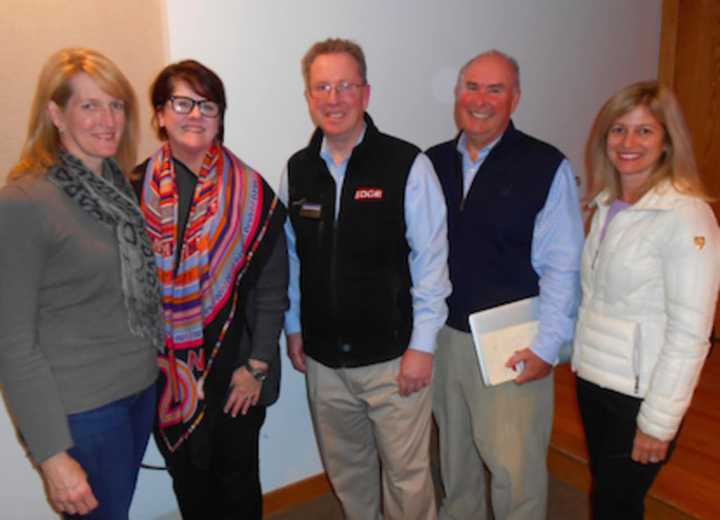The presentation -- titled “College Admissions: Realities of the Process” – was given by representatives of Competitive Edge College Advisors in the library’s Lamb Room.
The program was coordinated by Irene Spruck, vice president of patronesses for the National Charity League, and Doug Richardson of Competitive Edge.
The presentation was given by Brent Haney, one of four partners who founded Competitive Edge in 2013.
Haney said that his group has placed over 200 students in colleges to date – ranging from the Ivy Leagues and large universities to small liberal arts schools and colleges appropriate for special needs students.
The organization’s goal, he said, is to not only help students leverage their academic capabilities, but also to identify and develop their special talents and passions which make them unique and appealing to admissions directors.
Elite schools and the issue of brand versus fit was one of the many topics addressed.
Colleges are not only looking at the academic transcript and standardized testing, they are weighing the role rof extra-curricular activities.
Hanley said admissions officers like to see consistency and real involvement in areas about which students are passionate -- whether the interest is sports, music, art, student government, or volunteering in the community.
Admissions officials also like to see that students have taken some honors or advanced placement courses by the Junior year, Hanley said.
In the first year of high school, if the student is uncertain, he said, “it’s better to start off strong at grade level, then take on more challenging courses as confidence builds.”
The personal essay is also critical, Hanley said. What the student conveys about himself or herself can make all the difference if two candidates have comparable grades, he said.
What the teachers have to say also counts.
“Colleges are looking for grit,” Hanley said, and they like to hear how students have handled challenges and overcome adversity.
Another crucial factor in the admissions process, he said, is demonstrating interest in the college itself.
"Early decision" applications double the chance of a student being accepted in most cases, Hanley said He advised students to advocate for themselves with their teachers if they are not offered opportunities to pursue honors courses in their fields of interest.
Haney said that the Ivy League does not have the job market cornered, although some Fortune 500 companies do care about grades and want to see a 3.2 grade point average for any graduating college applicant before granting an interview.
Competitive Edge advisors, he said, believe that “finding a school that’s the right fit and a place where the student can be successful is of greatest importance, versus going a name brand school.”
Click here to follow Daily Voice New Canaan and receive free news updates.
